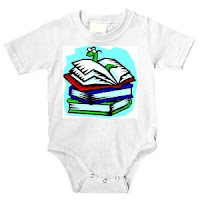
WE were delighted to read the letter from author Todd Strasser in the November School Library Journal about the marks his book received from Common Sense Media. The website's approach is less about the value of the total work than about searching out individual problems and concerns. This is a 'baby with the bathwater' attitude if there ever was one. Any reviewing forum has to work with a stable of varied -- and variable--reviewers. Generally there is a thoughtful editor assigning titles to individuals based on expertise or affinity. But at CSM reviewers are self-selected moms who seem to choose their targets pretty much based on an ax to grind. Hence the three "bomb" rating for "scary/violent" awarded to Are You My Mother? One wonders who is the one worried about being lost? Even more astonishingly delightful is the no big red lips for sexual content awarded to Twilight. Now there is a mom whose head is buried in the sand. Can one safely assume one's 4th grader will not recognize the sexual situations? Define the . . .
Please: use the site if you like to make decisions about what your child reads. But do not use the site to decide what other children read. Even better: read the book and decide for yourself.







